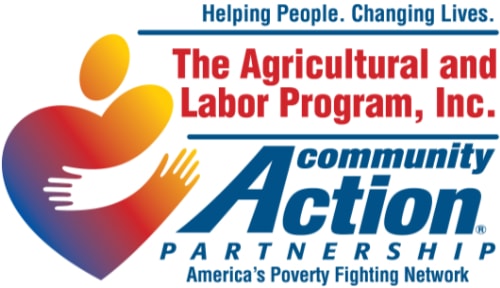Florida Sunshine Law During Covid-19 Emergency Measures
Florida’s Governor requested and obtained an Advisory Opinion of the Florida Attorney General (AG) about the applicability of the Sunshine Law during these emergency conditions.� ALPI’s Board is annually provided information and documentation of the applicability and requirements of the Sunshine Law in the January – February orientation/training sessions.� The AG’s guidance is that the Law still applies. Therefore, ALPI must continue to publicize its meetings as before, and the meetings are still public.� Note that the Bylaws require 15 days notice to local media, which has been provided for the upcoming April Board Meeting. The AG further stated that the meeting must be accessible via electronic means and the notice to the public must include that information. So, we must all govern ourselves accordingly.
Air conditioning appears to spread coronavirus�but opening windows could stop it, studies suggest
Opening windows in buildings, including our homes, may prevent the spread of the coronavirus, scientists believe.� Read this very interesting Newsweek article here.
Florida�s teachers union: Keep schools closed through end of academic year
Florida�s teachers union on Tuesday urged Gov. Ron DeSantis to keep Florida�s schools closed for the rest of the academic year, saying the �potential damage� from reopening campuses �far outweighs the inconvenience of continuing distance learning.�� Read the full article here.
HHS� Administration for Children and Families to Release Funding to Support the Child Care and Development Block Grant
COVID-19 spending bill gives an additional $3.5 billion to the Child Care and Development Block Grant to support families with child care options during this public health crisis.� Read more here.
HHS Announces Upcoming Funding Action to Provide $186 Million for COVID-19 Response
FOR IMMEDIATE RELEASE
The Department of Health and Human Services (HHS)
April 6, 2020
�Testing and surveillance is a vital piece of our efforts to beat the coronavirus, and this new funding will�expand our ability to track and prevent the virus�s�spread across the country,� said HHS Secretary Alex Azar. �State and local public health departments are on the frontlines of our fight against the pandemic, and these new resources will help them build the testing and surveillance capabilities needed to beat the new threat we face.�
�Increasing the capacity of our nation�s public health infrastructure is critical to stopping the spread of COVID-19 in communities across this country,� said CDC Director Robert R. Redfield, M.D. �These funds will augment core public health capabilities including surveillance and predictive analytics, laboratory capacity, qualified frontline deployers, and the ability to rapidly respond to emerging disease clusters in communities that currently have limited person to person spread of the virus.�
Using supplemental funding, CDC will:
-
Supplement an existing cooperative agreement to a number of states and local jurisdictions identified as having the highest number of reported COVID-19 cases (�hot zones�) and jurisdictions with accelerating or rapidly accelerating COVID-19 cases. This award will support a range of activities such as lab equipment, supplies, staffing, shipping, infection control, surge staffing, monitoring of individuals, and data management.
-
Supplement an existing cooperative agreement to state jurisdictions through the Emerging Infections Program (EIP) to enhance surveillance capabilities. Activities include investigating and assessing the burden and severity of COVID-19, evaluating and determining risk factors and outcomes, and planning and implementing prevention strategies.� These activities will build on existing programs developed for influenza and other respiratory pathogens. Funds will also be used to assess and evaluate exposed/infected healthcare personnel through clinical interviews to better identify risk factors and protective factors for COVID-19 infection.
CDC will use existing networks to reach out to state and local jurisdictions to access this initial funding.
To view the list of CDC funding actions to jurisdictions, click�here.
For more information about COVID-19, please visit CDC�s website:�https://www.cdc.gov/coronavirus/2019-ncov/index.html
Florida Announces Stay-at-Home Order
Florida’s Governor, Ron DeSantis, announced a stay-at-home order for Floridians on Wednesday, April 1, 2020.� But what does this all really mean?� Read the full story here.
Stress, Coping & Covid-19
The outbreak of coronavirus disease 2019 (COVID-19) may be stressful for people. Fear and anxiety about a disease can be overwhelming and cause strong emotions in adults and children. Coping with stress will make you, the people you care about, and your community stronger.� What can we do?� The CDC has plenty to say about this subject – read it here.
FOR IMMEDIATE RELEASE BY CDC
On Mass Gatherings or Large Community Events, Etc.
Guidance as of 3/15/2020
Large events and mass gatherings can contribute to the spread of COVID-19 in the United States via travelers who attend these events and introduce the virus to new communities. Examples of large events and mass gatherings include conferences, festivals, parades, concerts, sporting events, weddings, and other types of assemblies. These events can be planned not only by organizations and communities but also by individuals.
Therefore, CDC, in accordance with its guidance for large events and mass gatherings, recommends that for the next 8 weeks, organizers (whether groups or individuals) cancel or postpone in-person events that consist of 50 people or more throughout the United States.
Events of any size should only be continued if they can be carried out with adherence to guidelines for protecting vulnerable populations, hand hygiene, and social distancing. When feasible, organizers could modify events to be virtual.
This recommendation does not apply to the day to day operation of organizations such as schools, institutes of higher learning, or businesses. This recommendation is made in an attempt to reduce introduction of the virus into new communities and to slow the spread of infection in communities already affected by the virus. This recommendation is not intended to supersede the advice of local public health officials.
Remember, whenever possible, stay home and limit your personal interactions as much as possible. Read the entire report here.
